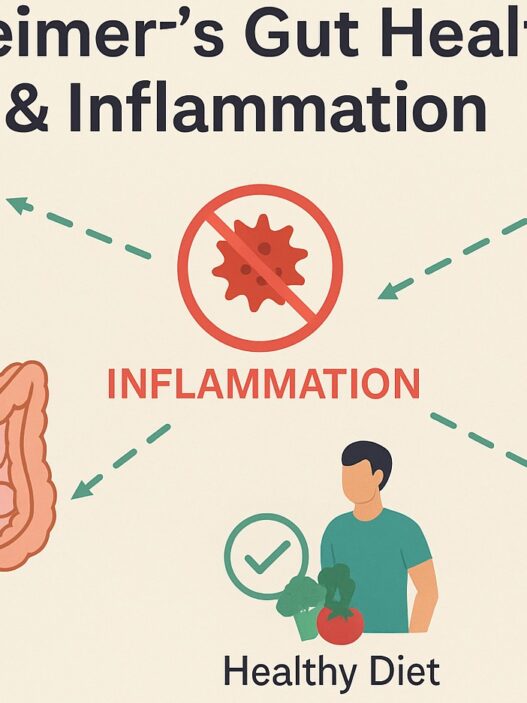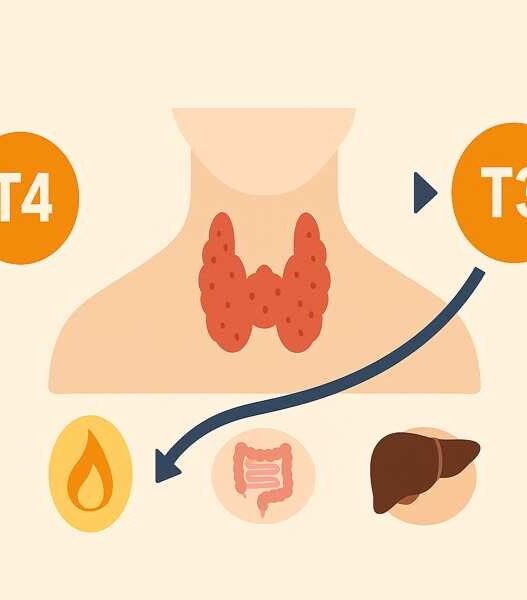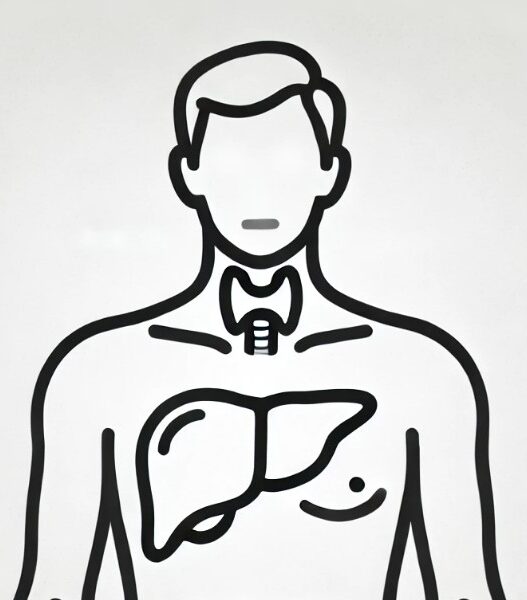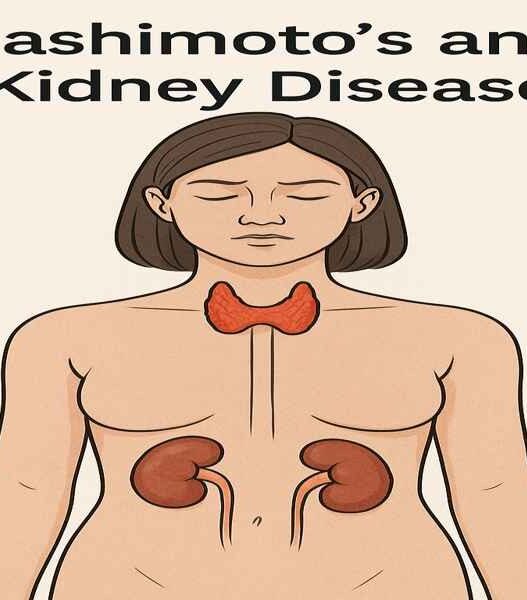Hashimoto’s Can Impact Your Heart Health?
Hashimoto’s thyroiditis is often viewed as a hormone issue. But it also affects your heart. The connection between Hashimoto’s and heart health is strong and often overlooked. Low thyroid hormone levels can quietly influence cholesterol, blood pressure, and inflammation—three major cardiovascular risks.
Let’s explore how this autoimmune condition can impact your heart and what you can do about it.
Elevated Cholesterol: A Silent Threat
Individuals with Hashimoto’s often experience hypothyroidism, leading to elevated LDL (“bad”) cholesterol levels. This lipid imbalance increases the risk of atherosclerosis, a condition characterized by plaque buildup in the arteries. A study published in the Journal of Clinical Endocrinology & Metabolism found that patients with Hashimoto’s thyroiditis had a higher risk of coronary heart disease, independent of other risk factors.
Moreover, the American Thyroid Association notes that untreated hypothyroidism can result in high levels of LDL cholesterol, further exacerbating cardiovascular risk.
In From Pain to Wellness, Overcoming Autoimmune Diseases, it’s emphasized that managing thyroid hormone levels is essential for maintaining healthy cholesterol levels and protecting heart health.
Blood Pressure Fluctuations: An Overlooked Concern
Hashimoto’s can affect how blood flows through your body. Thyroid hormones help control the stiffness and tone of your blood vessels. When those hormones are low, blood vessels may not relax as they should.
As a result, your diastolic blood pressure can rise. That’s the pressure when your heart rests between beats. High diastolic pressure makes your heart work harder. Over time, this can weaken your heart muscle.
You may not notice symptoms at first. However, dizziness, cold hands and feet, or fatigue can be subtle signs. Don’t ignore them. Even mild hypothyroidism can raise blood pressure.
Monitoring is essential. If you have Hashimoto’s and heart health concerns, check your blood pressure regularly. Support your thyroid with medication, lifestyle changes, and consistent care. This helps reduce cardiovascular risks.
Hashimoto’s and Heart Health: Why Inflammation Matters
Inflammation links Hashimoto’s and heart health in a powerful way. Hashimoto’s is an autoimmune disease. Your immune system attacks your thyroid, creating chronic inflammation.
Unfortunately, that inflammation doesn’t stay local. It spreads through your body, damaging blood vessels and organs. It can make cholesterol stickier. This leads to plaque buildup in arteries and increases heart disease risk.
Inflammation also raises C-reactive protein (CRP). High CRP levels are a red flag for future cardiovascular events. That’s why it’s critical to reduce inflammation daily.
Eat anti-inflammatory foods. Include leafy greens, berries, and omega-3s. Avoid processed foods and sugar. Get good sleep and manage stress. Supporting your immune system supports both your thyroid and your heart. The more you reduce inflammation, the better your outcomes will be.
Simple Steps to Improve Hashimoto’s and Heart Health
You can take control of your Hashimoto’s and heart health with a few simple actions:
Take thyroid medication as prescribed.
Eat an anti-inflammatory diet.
Include heart-healthy fats like olive oil and fatty fish.
Exercise regularly. Even walking helps.
Get blood tests for thyroid, lipids, and inflammation.
Reduce stress with mindfulness, yoga, or nature time.
Sleep at least 7–8 hours each night.
If needed follow a detox procedure.
Making changes can feel overwhelming. Start small. Build habits slowly. Each step supports your heart and your thyroid. With consistent effort, you can lower risks and feel more energized.
Final Thoughts on Hashimoto’s and Heart Health
The link between Hashimoto’s and heart health is strong but often missed. Low thyroid hormones impact cholesterol, blood pressure, and inflammation. All three raise your risk for heart disease.
Fortunately, knowledge is power. Once you understand this connection, you can take action. Work with your healthcare provider. Make lifestyle changes that support both your thyroid and your heart.
Don’t wait for symptoms. Be proactive. Your thyroid health and your heart health go hand in hand.
Take Charge of Your Thyroid and Heart Health Today
Low thyroid function can affect cholesterol, blood pressure, and even cause heart palpitations — and many people have no idea!
As someone living with Hashimoto’s, I’ve learned how important it is to look beyond the thyroid and support the whole body, especially the heart.
That’s why I created a free checklist to help you feel more confident, informed, and in control of your health journey. It covers:
✔️ Labs to discuss with your doctor
✔️ Anti-inflammatory nutrition tips
✔️ Gut and immune support
✔️ Rest + stress care
✔️ Symptom tracking
📩 Want the checklist?
Send me a message in Contact Us page or subscribe here and get it by email. (It’s not an instant download — I want to make sure it goes straight to your inbox 💌)
You’re not alone on this journey. With the right support and knowledge, healing is possible — one step at a time.
You might want to get informed about other “Did You Know” connections with Hashimoto’s:
Hashimoto’s and Kidney Disease






















